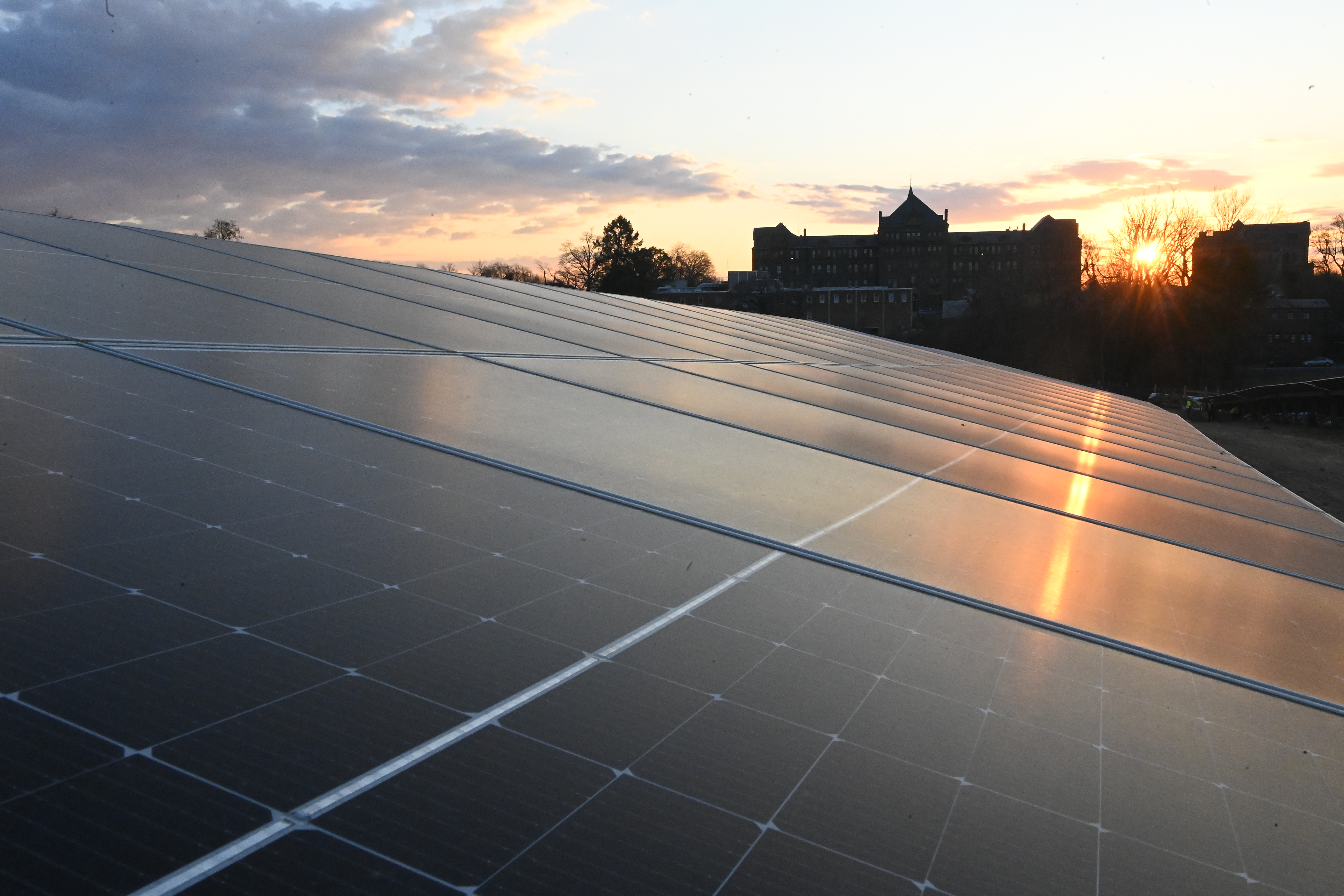Energy
Catholic University is powered by clean energy. Catholic U hosts the largest solar installation in the Washington, D.C. metropolitan area and 100% of the electricity used on campus is purchased with Green e-Certifications.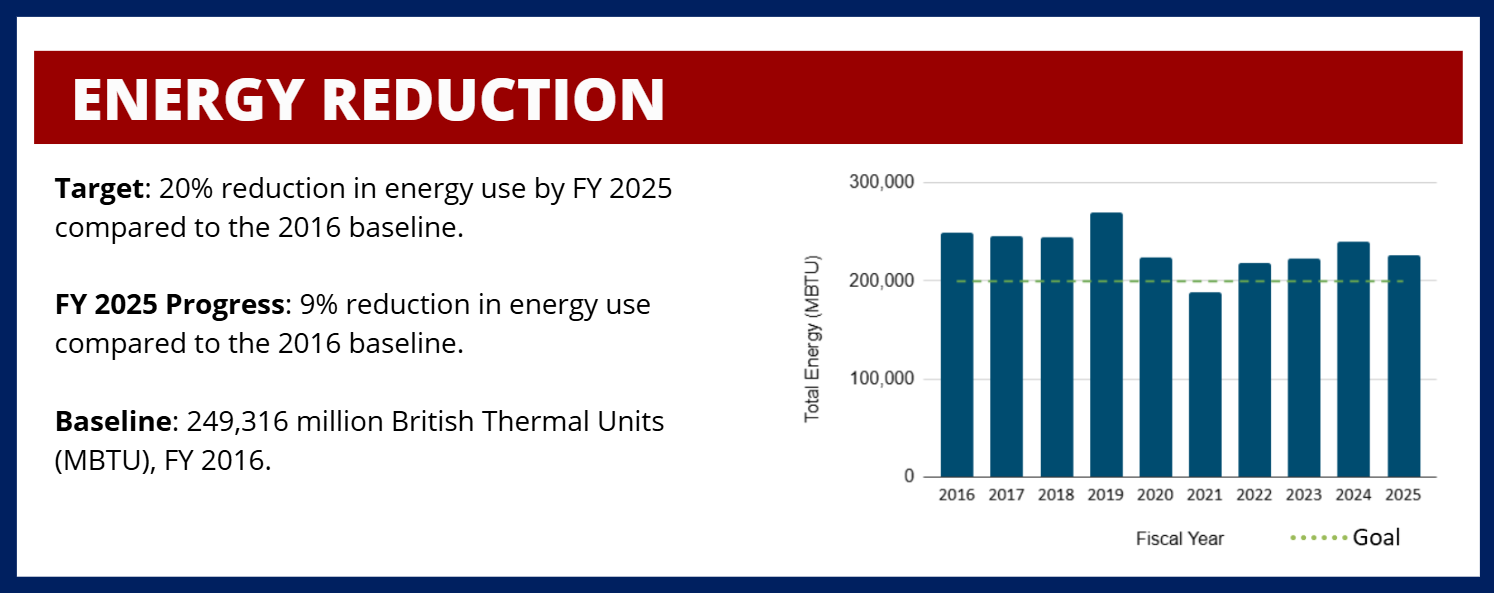
How do we achieve our target? Do your part! Read our blog post on how to reduce your energy consumption on campus.
-
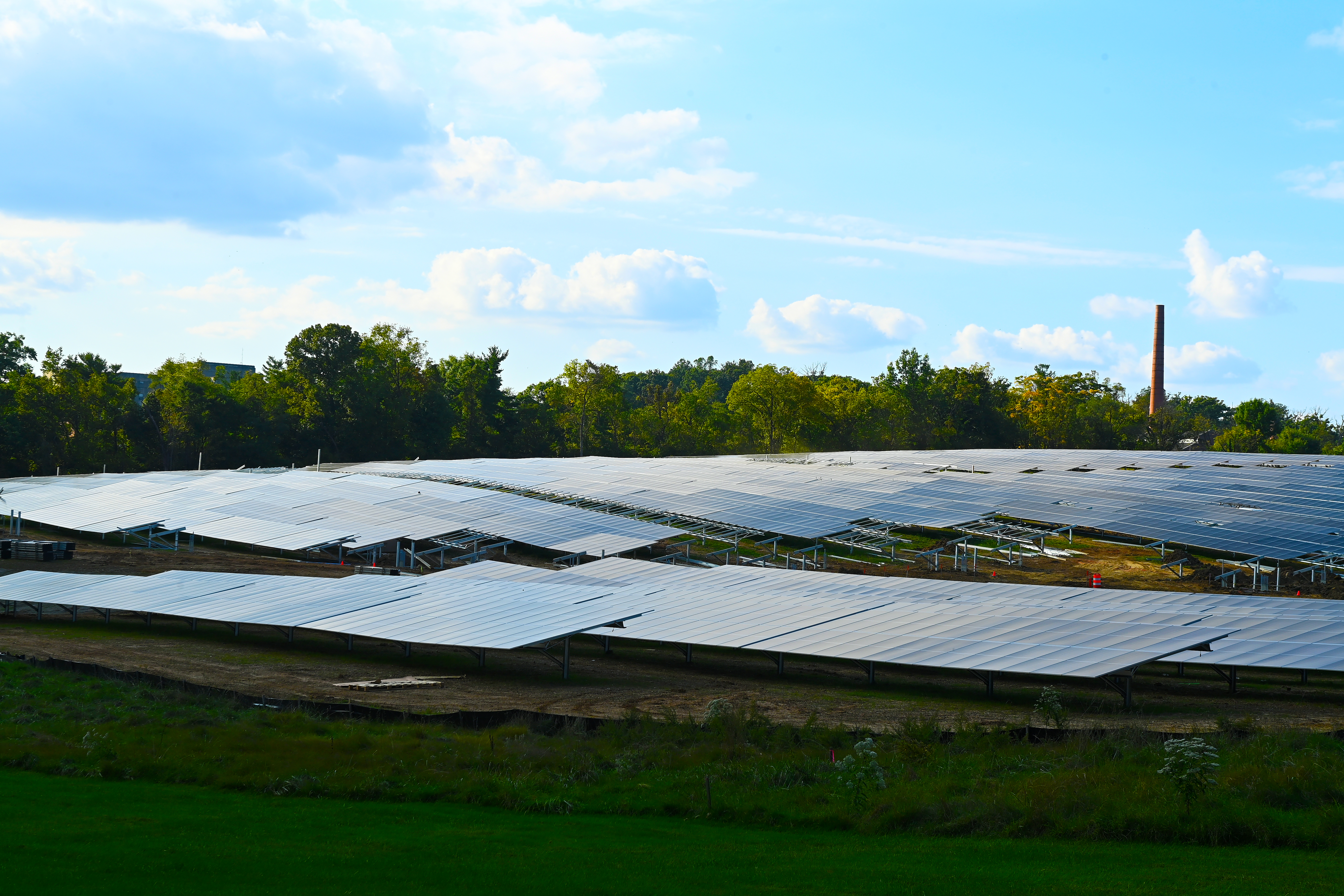
-
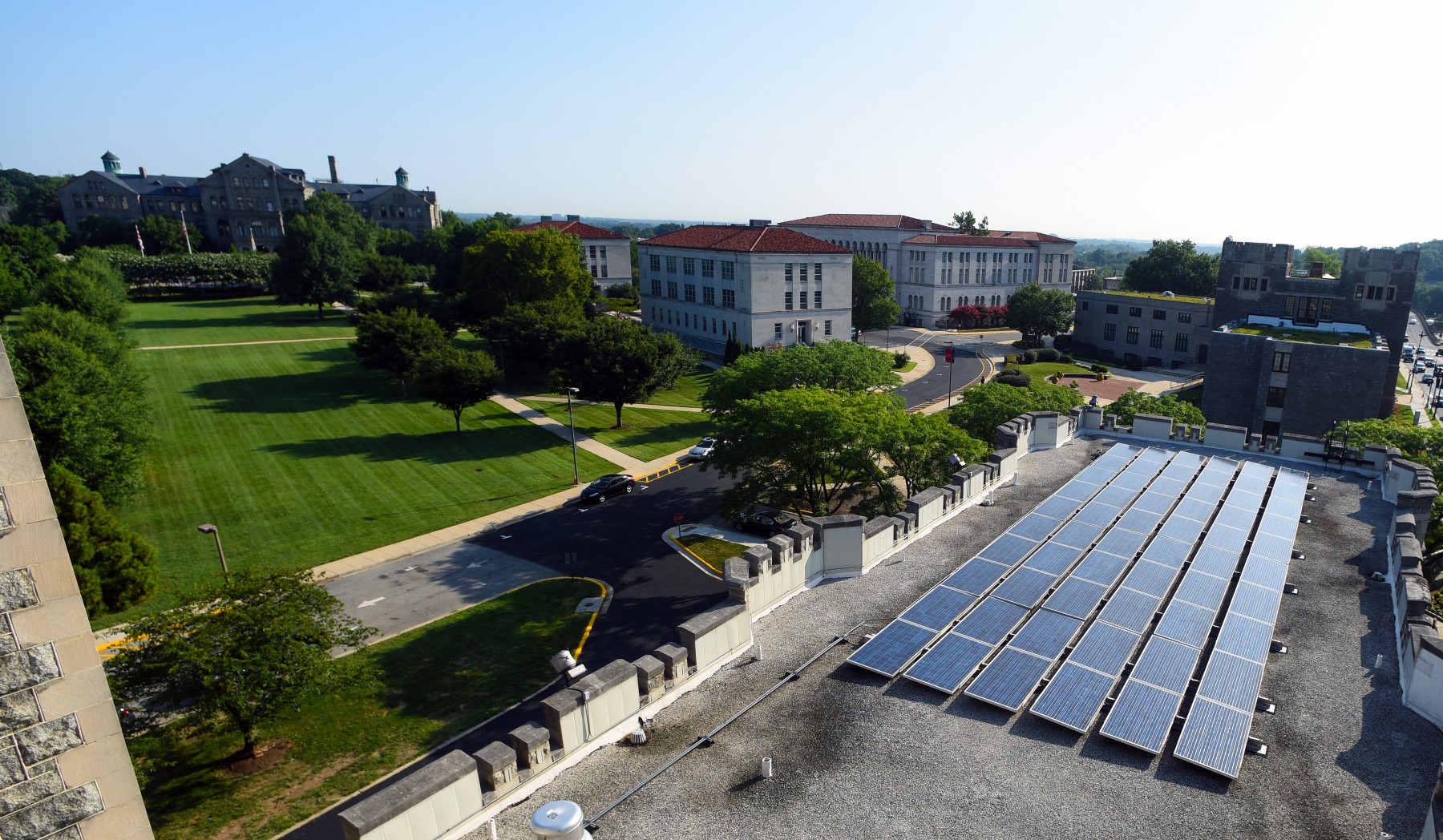
Solar Power: Main and North Campus
Catholic University has a total of 2,600 solar panels on Main & North Campus. Solar panels are installed on Aquinas Hall, Flather Hall, Gibbons Hall, Pangborn Hall, the DuFour Center, the Grounds and Maintenance Building, and the O’Boyle Parking Lot. The solar panels have a combined 677 kW of installed capacity. -
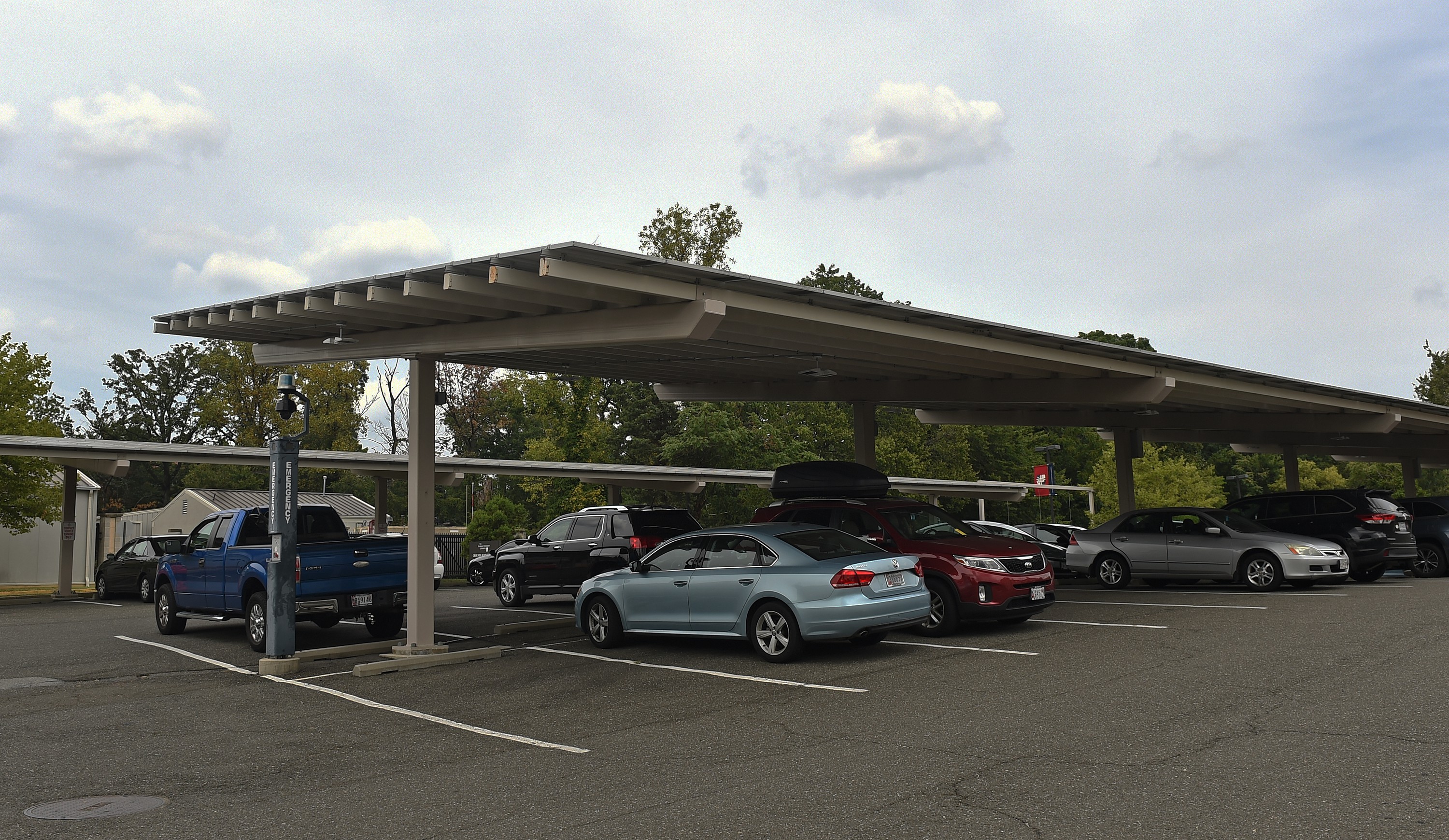
Renewable Energy Credits
Catholic University offsets 100% of its electricity usage through the purchase of renewable energy credits (RECs). RECs are tradable, non-tangible energy commodities that represent proof that 1 megawatt-hour of electricity was generated from a renewable energy source such as solar or wind. -
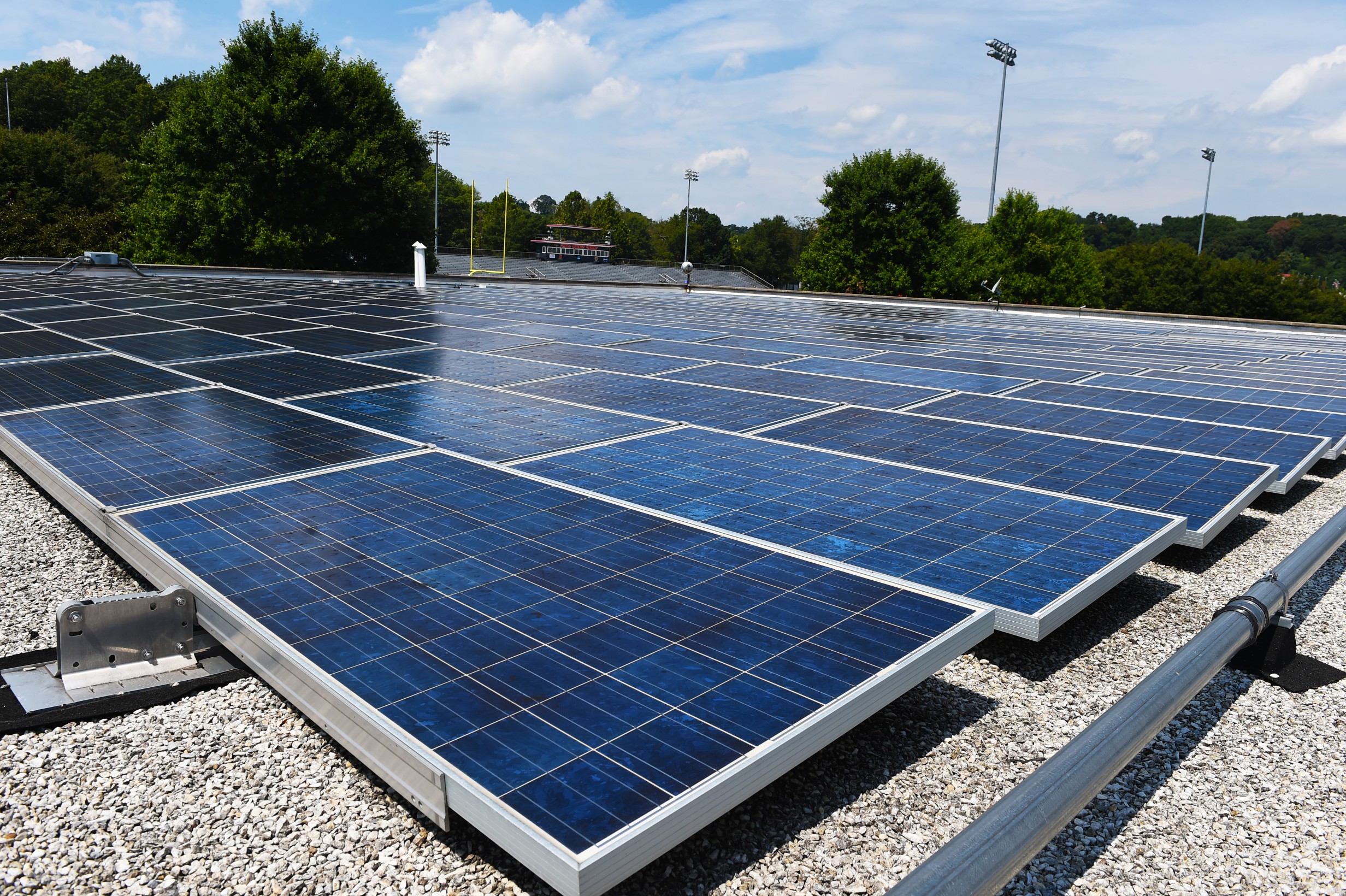
Energy Efficiency
Catholic University focuses on energy efficiency by installing energy efficient appliances such as ENERGY STAR certified lighting, IT equipment, AV equipment, and kitchen equipment. Catholic U regularly upgrades buildings to more efficient equipment when undergoing renovations and also uses a building automation system to increase control over all campus building heating, ventilation, and air conditioning. -
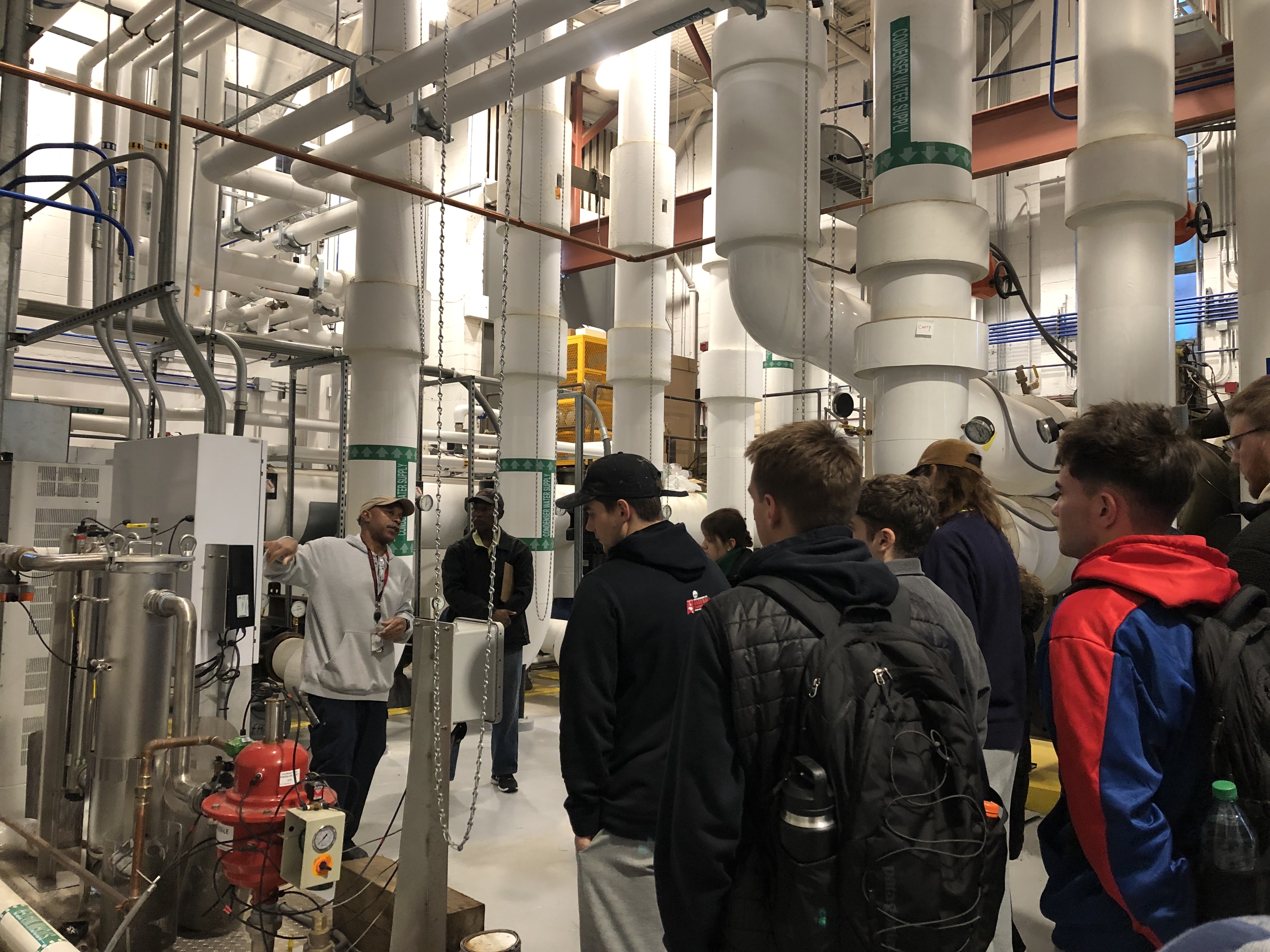
Energy Project
The Energy Project was the most significant energy conservation effort on campus in recent years. The project removed the old campus-wide steam system and replaced it with an energy efficient, heating water system served from the campus central plant. The project helped the University centralize and modernize the cooling infrastructure of many buildings by providing chilled water distribution systems also served from the campus central plant.

